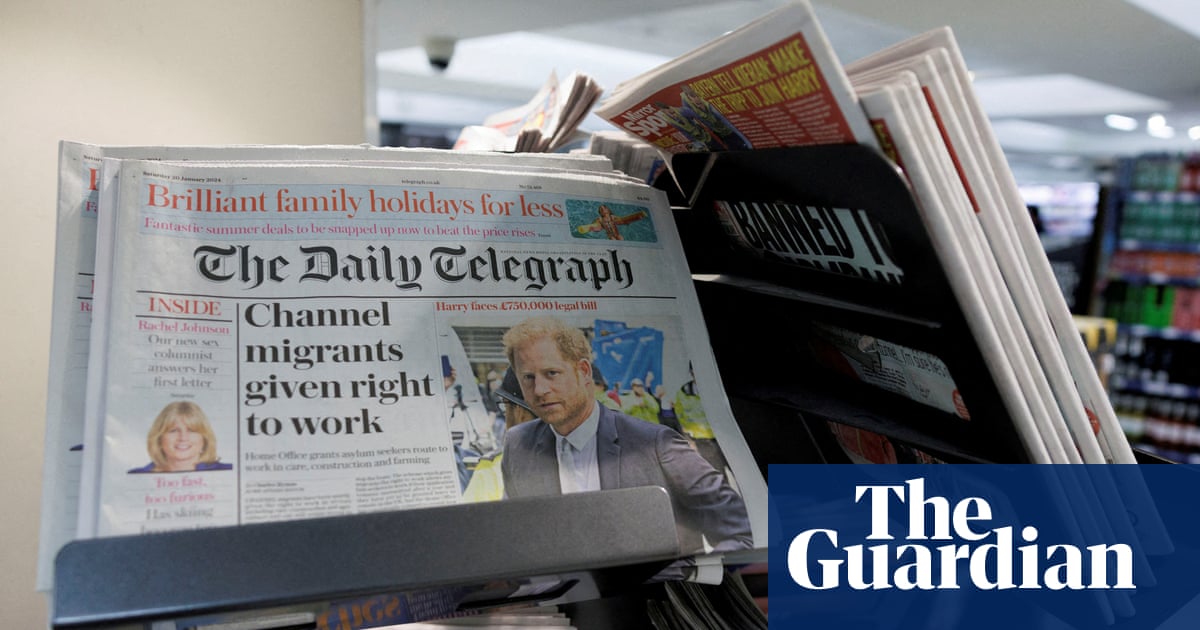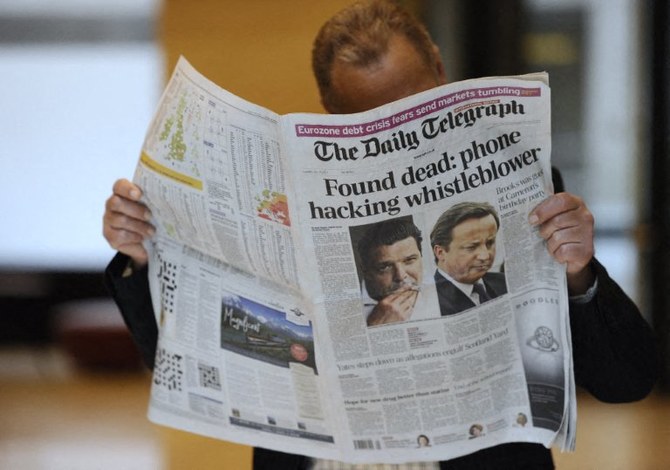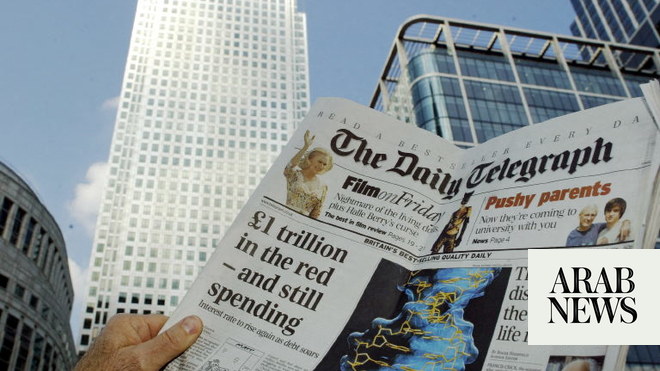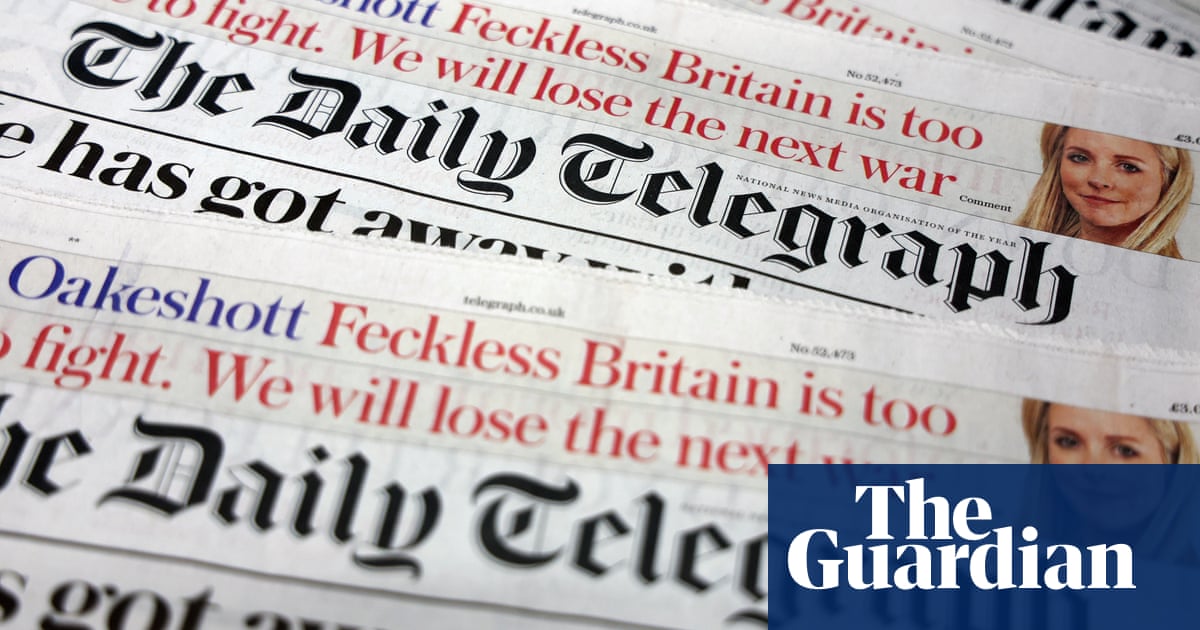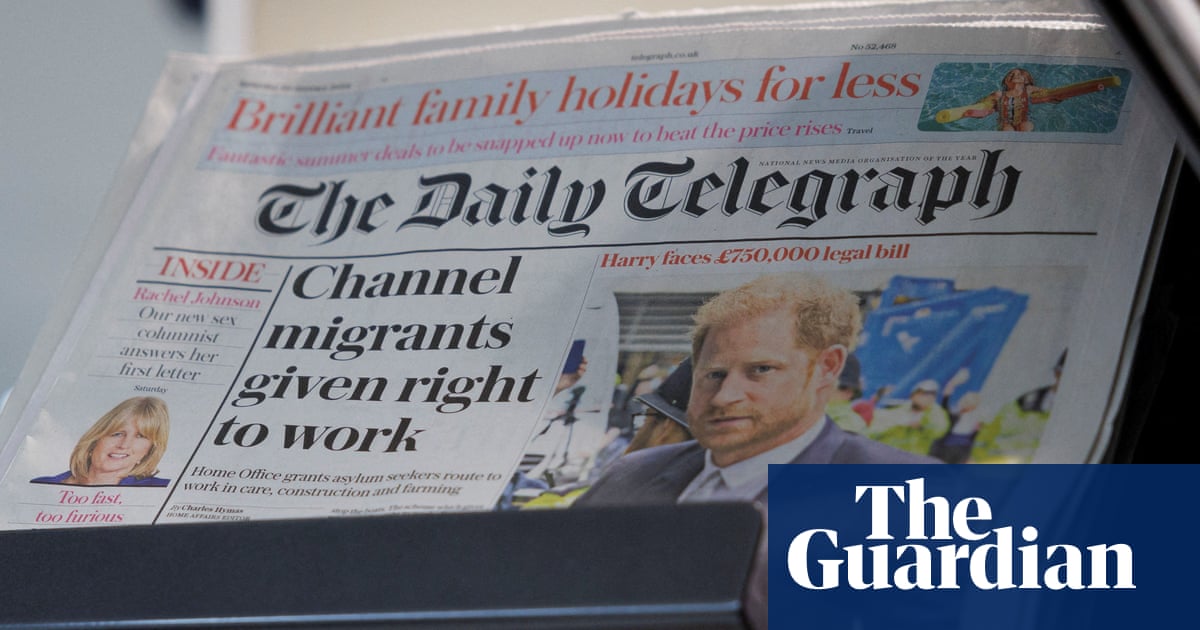
The UAE-backed bid for the Telegraph group appears to be dead in the water after the UK published proposed laws that ban foreign states or government officials from holding any direct stakes in newspaper assets.
Foreign states and government officials will be banned from holding any direct stakes in newspaper assets – effectively dealing a death blow to the £600m bid for the Telegraph group from RedBird IMI, a consortium backed by the United Arab Emirates.
Rishi Sunak’s government unveiled the legislation, which could be on the statute book within weeks, in the form of an amendment to the Enterprise Act 2002 that will effectively block foreign powers from owning UK newspaper assets.
The proposed legislation expands on the current definition of “foreign powers” used in the National Security Act 2023 to ensure it covers officers of other governments acting in a private capacity and investing their private wealth.
It means that foreign states cannot have any stake in a newspaper group and the definition of foreign power extends to:
The head of a foreign state.
A foreign government.
Authorities responsible for administering the affairs of an area within a foreign country.
Governing political parties.
Officers of governing political parties.
However, the proposed law has a narrow and specific exemption for sovereign wealth funds with a passive investment below a certain threshold.
It deals a fatal blow to the proposed Telegraph deal by RedBird IMI, a partnership backed by Sheikh Mansour bin Zayed Al Nahyan, the vice-president of the UAE, and the US investment firm RedBird Capital Partners. The fund has about 75% of its backing from the UAE.
The planned takeover of the Telegraph, widely seen as the house journal of the Conservative party, has been fiercely opposed by many Tory MPs and peers given the UAE’s poor record on press freedom.
RedBird IMI is assessing its options but is thought to have been leaning towards a full sale of its Telegraph stake in recent days. It has not commented publicly other than to say last week it was “extremely disappointed” by the latest developments and would “evaluate our next steps, with commercial interests continuing to be the sole priority”.
An auction process for the Telegraph group led by the US investment bank Goldman Sachs began last October after the failure of the owners, the Barclay family, to repay debts of £1.15bn to Lloyds Banking Group. However the auction was paused in November after RedBird IMI pledged to repay the Barclays’ debts.
Since then the RedBird transaction has been held up by regulatory scrutiny. The culture, media and sport secretary, Lucy Frazer, said this week she was minded to refer the RedBird IMI deal for a detailed phase 2 investigation by the Competition and Markets Authority after she received reports from the CMA and the media regulator Ofcom this month.
If an auction were to be restarted, there is likely to be no shortage of bidders. Last November, Lord Rothermere, the executive chair of the Daily Mail and General Trust (DMGT), expressed interest during an interview with the Times. News UK has been among the parties that had shown interest in the Telegraph group’s Spectator magazine.
Other to have expressed interest in the Telegraph last year include Sir Paul Marshall, the co-founder of the hedge fund Marshall Wace andearly backer of GB News; and National World, the group headed by David Montgomery, a former Trinity Mirror executive.
The UK government, which has close economic ties to the UAE, has been keen to stress that the proposed law applies narrowly to newspaper assets. Frazer said on Tuesday there was no “double standard” in allowing Manchester City football club to be owned by an Emirati royal but opposing the Telegraph takeover, saying the two investments were “totally different”.
She told ITV’s Good Morning Britain programme: “We believe in this country in the free press. The media’s job is to hold power to account and it’s, therefore, inappropriate for the UK government to own a newspaper and it’s, therefore, also inappropriate for a foreign state to own a newspaper.
“But we are very much open for business in terms of foreign investment in other spheres, like football.”
The proposed legislation means that in future, media merger cases would be referred to the CMA through a new foreign state intervention notice where there are reasonable grounds to believe the merger has given, or would give, a foreign state or a body connected to a foreign state, ownership, influence or control of a UK newspaper or news magazine.
The CMA would then be obliged to investigate the possible merger and, if it concludes the merger would result in foreign state ownership, then ministers would be required by statute to make an order blocking or unwinding the merger.




